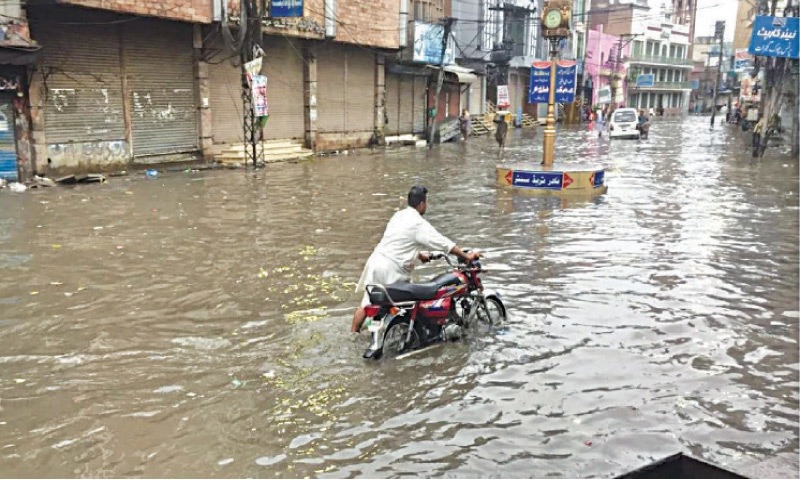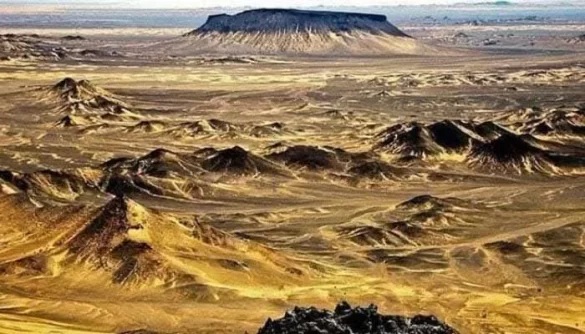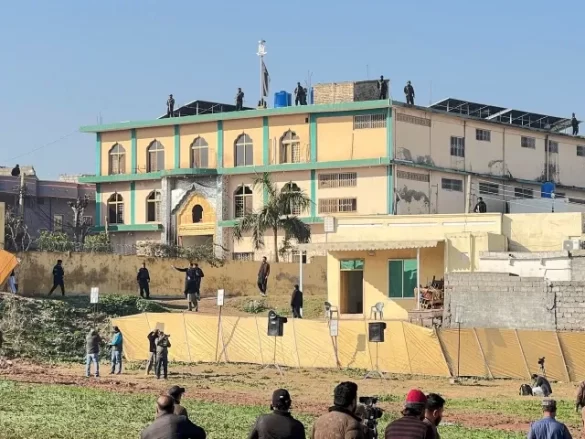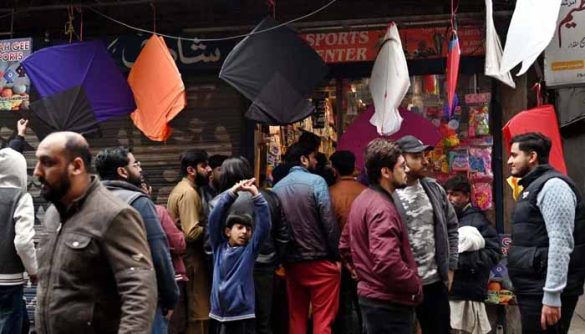Widespread Flooding After Torrential Rains
Recent heavy rains in the Pakistani city of Gujrat have caused severe flooding in several densely populated areas. The scale of the crisis has been so severe that residents in parts of the city have been forced to evacuate their homes due to urban flooding.
Qamar Sialvi Road and its adjoining neighbourhoods — including Shafi Abad, Gulberg Colony, Shah Hussain, Rang Pura Tibba, Allah Lok Colony and Alipur Road — have been particularly hard hit.
Floodwaters have entered homes and streets, mixing with untreated sewage that had already accumulated due to poor drainage systems. The combined effect has created unbearable conditions for residents and raised alarm over the potential spread of waterborne diseases.
Stagnant Sewage Adds to the Crisis
According to local reports, a major sewage channel passing through the affected areas had long been neglected. Its inadequate capacity to drain wastewater had already posed risks. Once the monsoon downpours began, the overflowing sewage combined with rainwater, leaving homes, alleys, and open spaces submerged in foul-smelling water.
Public health experts warn that such stagnant pools can become breeding grounds for mosquitoes and bacteria, potentially leading to outbreaks of dengue fever, malaria, cholera, and gastroenteritis. With several houses now surrounded by contaminated water, families fear for the health of children and the elderly, who are most vulnerable to infections.
Residents Frustrated With Slow Relief Efforts
Local residents expressed deep frustration at what they see as an inadequate response from the municipal authorities. While rescue teams have been deployed in certain areas, residents claim that the pace of water removal remains extremely slow.
“Every passing day, the water level remains the same. Our children cannot go to school, and even drinking water feels unsafe,” one resident of Gulberg Colony told local reporters. Another resident added that people are forced to wade through filthy water to access food and medicine.
Many have appealed directly to the rescue services and municipal administration, urging them to prioritize immediate drainage and cleaning before the situation spirals into a full-blown health emergency.
Risk of a Public Health Emergency
Flood-related health crises are not new to Pakistan. According to the World Health Organization (WHO), last year’s floods left millions exposed to outbreaks of diarrhoeal diseases, malaria and skin infections. In Gujrat, where sanitation systems are already weak, residents fear a repeat scenario.
Experts stress that swift intervention is crucial. The first steps include clearing stagnant water, disinfecting the affected areas, and spraying insecticides to prevent mosquito breeding. Without these measures, the risk of outbreaks will multiply rapidly.
What Needs to Happen Next
Public health officials say the local administration must act on multiple fronts:
-
Drainage: Deploy additional pumps to clear waterlogged neighbourhoods.
-
Sanitation: Conduct emergency waste disposal and sewage management.
-
Disinfection: Spray disinfectants and anti-mosquito chemicals in affected streets.
-
Awareness: Provide residents with guidance on safe water use and hygiene practices.
Without urgent action, they warn, the current flooding could develop into a prolonged crisis, further straining healthcare services already under pressure.
Resilience Amid Hardship
Despite the grim situation, residents are working together to cope with daily challenges. Volunteers are helping distribute clean water and dry food to families in need. Community members have also started small-scale cleanup drives, though they admit the scale of the problem requires government-level intervention.
As the monsoon season continues, Gujrat’s experience highlights the broader vulnerabilities of urban areas in Pakistan. Poor drainage infrastructure, unchecked urban expansion, and insufficient preparedness combine to turn seasonal rains into recurring disasters.
For now, families living around Qamar Sialvi Road remain trapped between contaminated water and uncertainty, waiting for relief efforts to match the urgency of their plight.















